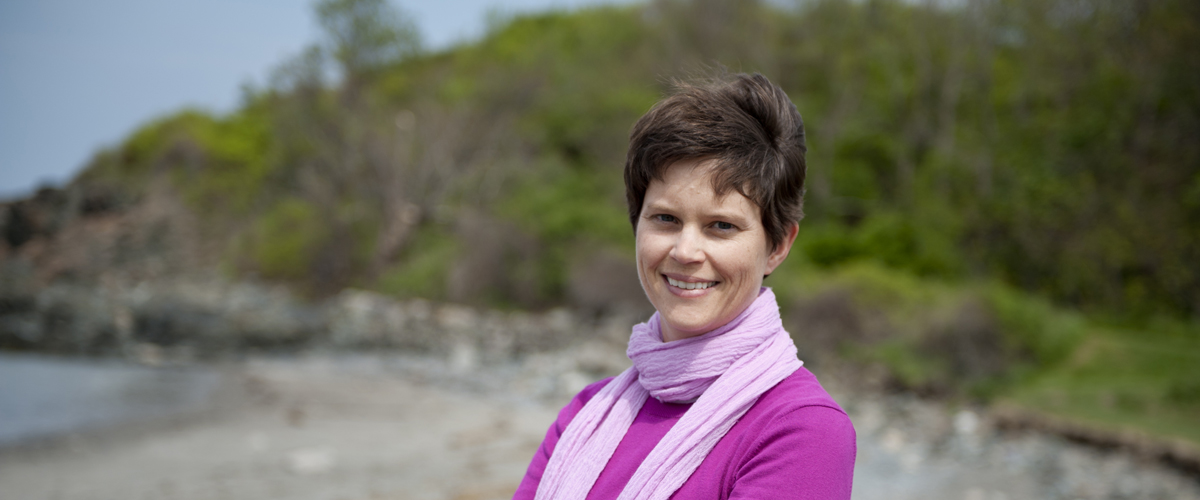by Julia Renner, Environmental Science, 2017
Randall Hughes, Assistant Professor in the Marine and Environmental Sciences department, has been awarded the prestigious National Science Foundation Faculty Early Career Development (CAREER) Award. Described as the NSF’s “most prestigious award in support of the early career-development activities of those teacher-scholars who most effectively integrate research and education,” the Career Award recognizes Dr. Hughes’ outstanding contributions to the field of marine ecology through her work as a teacher and researcher.
“The Career program is somewhat unique in its focus on integrating research and education,” says Hughes, whose work has long focused on both. After completing her undergraduate degree at the University of North Carolina, Chapel Hill, Hughes spent four summers working as a research technician at the UNC Institute of Marine Sciences while teaching seventh-grade science at Charlotte Country Day Middle School. She completed her PhD at the University of California, Davis, followed by work at the Bodega Marine Laboratory and the Florida State University Coastal and Marine Laboratory, before beginning at Northeastern. Hughes describes research and teaching as “difficult to fully separate…they each influence the other. Teaching Conservation Biology at Northeastern influenced the research objectives in my Career proposal, which include partnerships with restoration practitioners and natural resource managers.”
Hughes’ research is based out of Northeastern’s Marine Science Center in Nahant, where she focuses on the causes and consequences of genetic diversity in marine ecosystems. She has a particular interest in how diversity improves the resilience of systems like seagrasses and oyster reefs. The CAREER Award will provide five years of funding rather than three years typical of NSF grants, giving Hughes time to pursue complex research questions about these ecosystems. “The CAREER grant will allow my lab to expand into a new research area examining the links between biodiversity and disease,” she says, and “will also provide opportunities to apply those findings to improved management and restoration of coastal habitats.”
“Scientific research…is a combination of so many different activities and skills,” Hughes says, reflecting on what makes a research career so unique. “Identifying questions and ways to address them requires not simply knowledge of the literature, but also creativity and ingenuity, as well as patience, attention to detail, and perseverance. Each day is different.”

